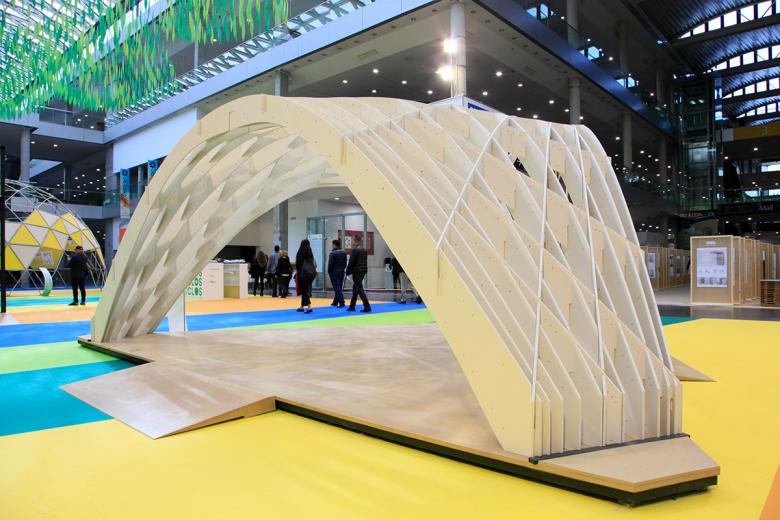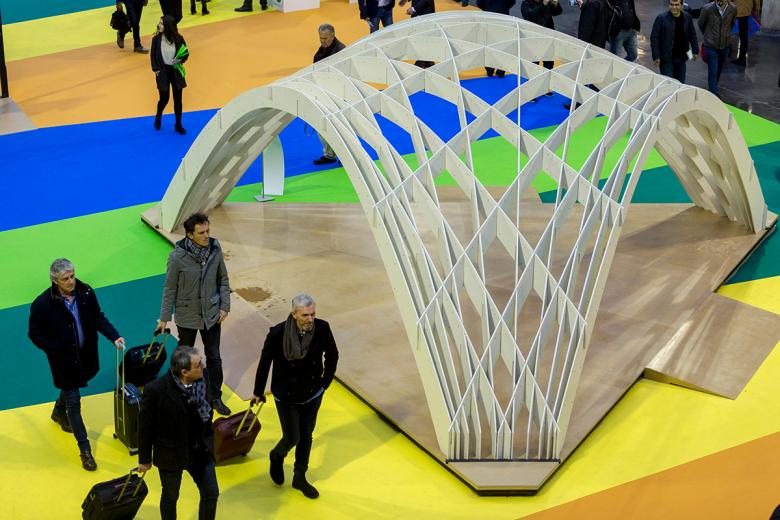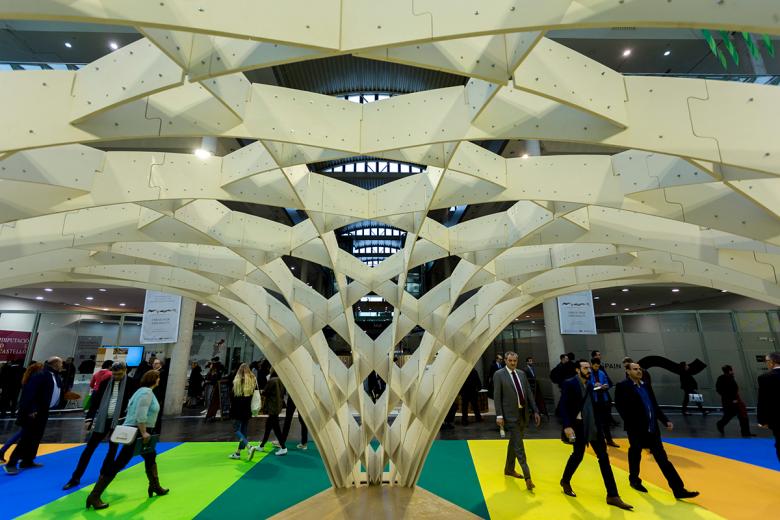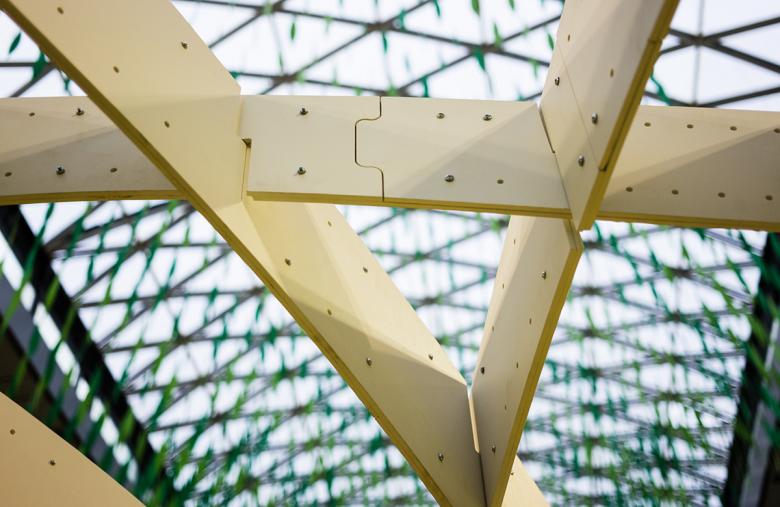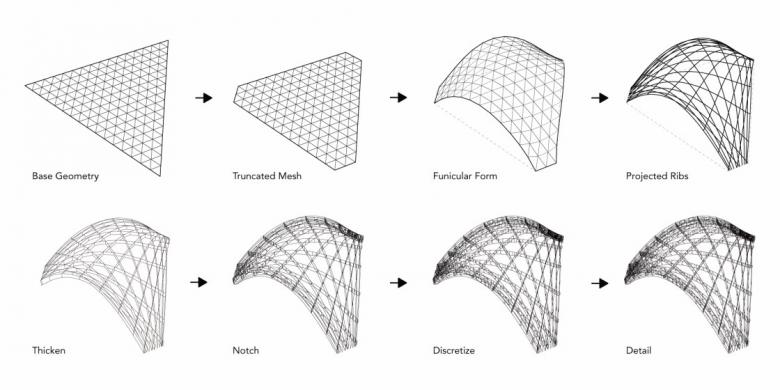The World’s First All-Ceramic Grid Shell
Harvard GSD's Material Processes and Systems (MaP+S) Group teamed up with ASCER Tile of Spain to create Ceramic Tectonics: Tile Grid Shell at the Cevisama International Fair for Ceramic Tiles and Bathroom Furnishings that took place in Valencia, Spain, earlier this month.
Project: Ceramic Tectonics: Tile Grid Shell, 2018
Location: Cevisama, Valencia, Spain
Client: Cevisama
Designer: Material Processes and Systems (MaP+S) Group, Harvard University GSD
Director: Professor Martin Bechthold
Project Manager: Zach Seibold
Design Research: Yonghwan Kim, Olga Mesa, Milena Stavric
Engineering: M. Bechthold (peer review: Windmill Structural Consultants)
Sponsor: ASCER Tile of Spain
Coordinator: ITC: Javier Mira
Installation: Grupo on Market
Think "ceramic tile" and most likely surface applications come to mind, such as bathroom walls or kitchen backsplashes. Striving to find alternative applications for ceramics, MaP+S, under the leadership of Martin Bechthold, has participated in Cevisama since 2012. Using digital fabrication and other techniques, the installations have ranged from the stacking of clay extrusions to 3d ceramic printing to this year's catenary structure made from 6mm thick ceramic tiles.
The unreinforced tiles were assembled into 30 ribs that touch down in only three places and span six meters between supports. The double-layer ribs were made from 462 unique elements ranging from 82 to 181 centimeters in length, bolted to each other through precut holes. The ribs notched together to create either triangular or hexagonal openings (photo at top). The construction is billed as the first self-supporting ceramic grid shell in the world; most grid-shell applications are wood, steel, or even cardboard.
The complex shapes of the tiles, which include notched connections for intersections between ribs (photo below), meant that digital technologies were needed every step of the way. Per MaP+S: "The project team developed a computational approach to generate the geometry of the pavilion, discretize the form into individual components, accommodate for assembly tolerances, and generate the toolpath geometry for each component. This digital workflow enabled the project team to quickly adjust assembly tolerances and component dimensions during the design and prototyping phase."
Watch the short video below to see the fabrication, packaging, and erection of Ceramic Tectonics: Tile Grid Shell.

